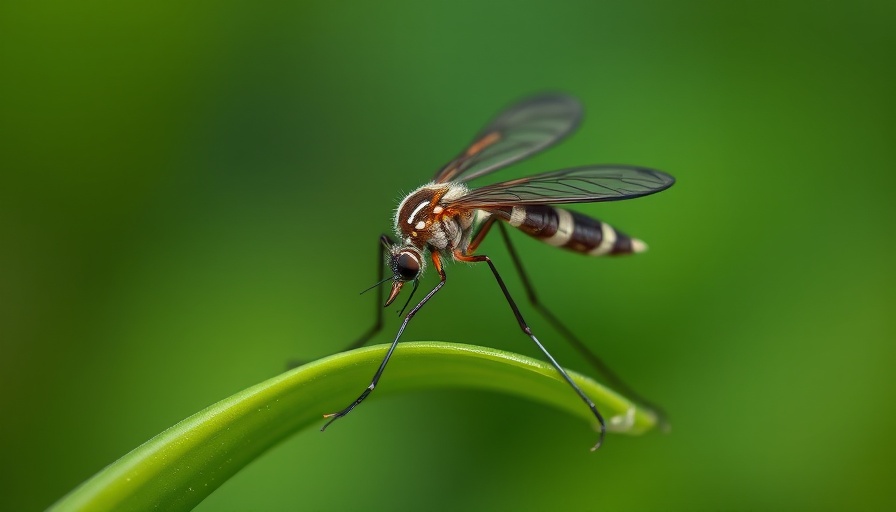
The Rising Threat of Dengue and Other Mosquito-Borne Diseases
As climate change continues to reshape our environment, the spread of mosquito-borne diseases such as dengue fever is becoming a pressing concern. Recent warnings from the Centers for Disease Control and Prevention (CDC) highlight an alarming increase in dengue cases in the Americas—a staggering 9.7 million cases reported this year alone, double the total from last year. As climate conditions shift, parts of the southern United States may soon experience this tropical virus that had once seemed distant.
Climate Change and Disease Transmission
Experts like epidemiologist Neil Vora point to the direct correlation between climate change and the proliferation of diseases carried by vectors like mosquitoes. Warming temperatures create environments conducive to these pests, extending the length of transmission seasons. A chilling projection suggests that by 2080, nearly 2 billion people could be at risk of exposure to dengue.
The Broader Picture: What Lies Ahead?
Dengue may be the current face of this crisis, but it’s far from the only threat. Recent cases of malaria in states like Florida and Texas signal a worrying trend with local transmission of diseases previously controlled or eradicated. In South America, the Oropouche virus is beginning to spread, threatening regions that were once safeguarded.
Investing in Nature for Disease Prevention
As we grapple with these challenges, scientists emphasize the importance of preventative measures. Vora advocates for a paradigm shift in public health—addressing both climate change and disease prevention simultaneously. By investing in nature-based solutions, not only do we mitigate the impacts of climate change, but we also create solutions that benefit all, especially in resource-limited areas.
Conclusion: Acting on Climate to Protect Public Health
The overlap between climate change and public health has never been clearer. As we face the reality of diseases creeping towards new territories, it's crucial to act on climate initiatives. Preventing the next wave of infections hinges on our ability to tackle climate change head-on.
 Add Row
Add Row  Add
Add 




 Add Row
Add Row  Add
Add 

Write A Comment